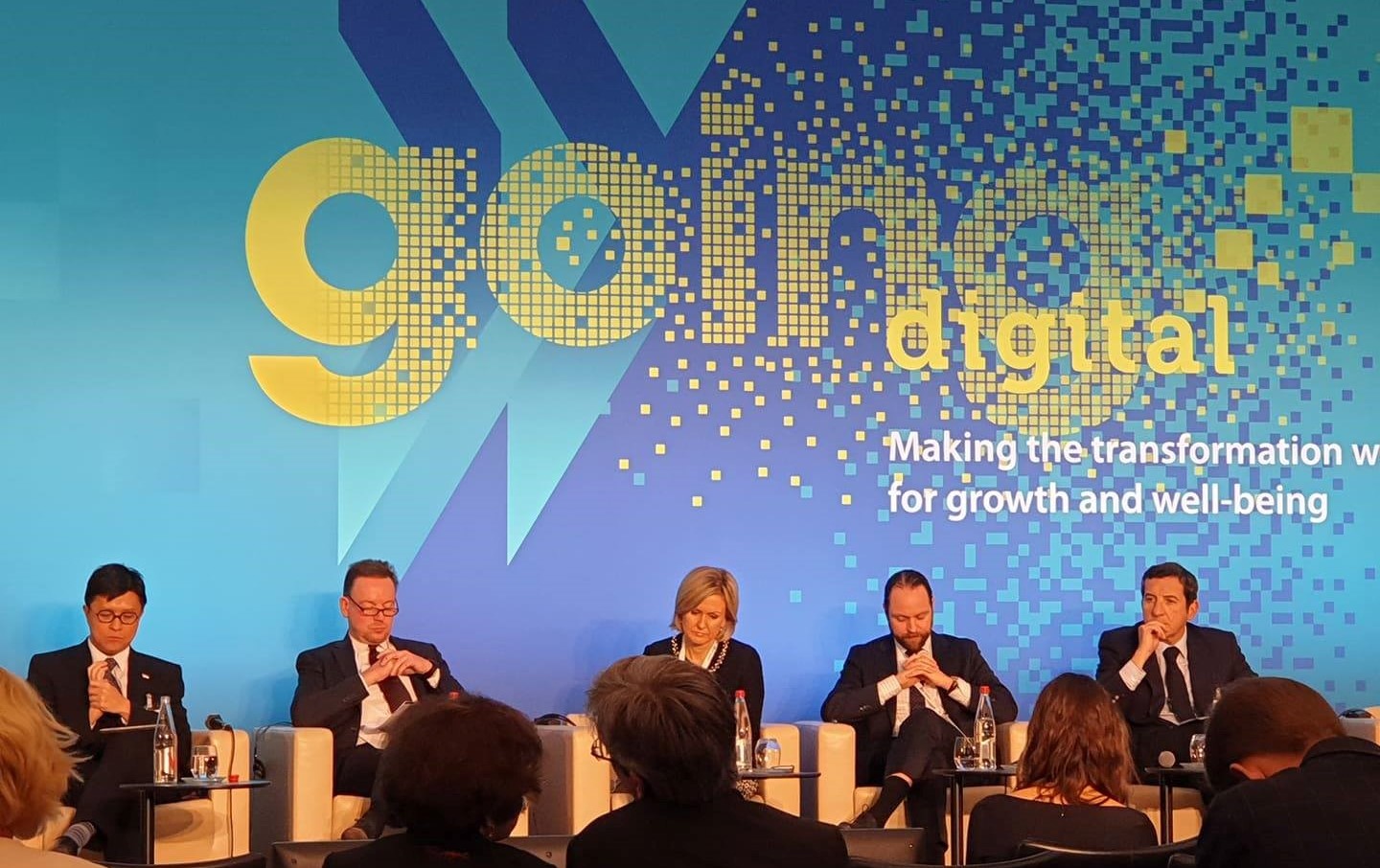 Enrique Medina
Enrique Medina
The Fourth Industrial Revolution is impacting our societies and economies at a breakneck speed across the world. No aspect of our lives will be untouched, and education is no exception. As the labour market is being radically transformed, we are starting to see a mismatch between labour market demand and educational offering, so education cannot be separated from the digital revolution that is taking place in all sectors and in all countries.
Are we educationally prepared for the digital age? Are we taking the necessary steps to participate in this new paradigm? These two questions are essential to address one of the most pressing challenges for our current and future societies: the transformation of the workforce and the adaptation of education systems to the digital skills needed to be part of this new era.
This situation leads us to act urgently in two fronts: adapting the formal education to the changing market demand and ensuring that current employees remain the avant-garde of their respective roles.

Enrique Medina speaking about digital education during his participation in OECD Going Digital event.
Technology as facilitator of lifelong learning
Education is no longer something that is done in a specific institution for a specific period to obtain a certification. It is becoming a lifelong learning journey where practical knowledge can be more relevant than traditional qualifications.
Connectivity and the introduction of new technologies in education are making possible to add new learning opportunities, universalizing and democratizing access to quality knowledge, and contributing to equal opportunities.
In this sense, sustainable high-quality internet connectivity is the basis for reducing inequalities and promoting universal access to digital education, which is key to ensure that everyone can benefit from the social and economic benefits that the digital economy can bring. Digital literacy and digital skills are key enablers to mitigate inequalities, build strong digital economies, and improve access to information.
This problem is most acute in the Global South and we are fully aware of this. Therefore, we are very excited about the new initiative launched by Telefónica, Facebook, BID Invest and CAF (Latin American Development Bank) with the aim of expanding connectivity to rural and remote areas of Latin America, Internet Para Todos (IpT) Peru. This new company is an open access wholesale rural mobile infrastructure operator which aims to help bridge the digital divide in Latin America.
We firmly believe that technology and connectivity will help provide better education for all and we know that digitization is essential for increasing sophistication and quality by making education portable, accessible, affordable, scalable and upgradeable.
The need to upskill and reskill ourselves for the digital era
Digitally accelerated activities and the adoption of new emerging technologies, such as blockchain or Distributed Ledger Technology and Quantum Computing, are certainly outpacing our ability to adapt educational offer to match labour market demand, due to de speed and the scale of changes. But they are also making much harder for existing professionals to upskill or reskill themselves to these new needs.
In the next decade, skilled professionals will be needed in all jobs. If we encourage the education of future generations in technology, they will have the opportunity to integrate into the world of work.
Existing workforces will need to be reskilled to guarantee future employability and there are two very specific areas where this problem is highly visible for ICT companies in OECD countries: data professionals and cybersecurity experts. In an already data driven world, where AI and machine learning trained from massive amounts of data are already starting to provide great benefits to society, demand professionals with these skills has increased over 30% and 300% year over year and over last six years.
The same could be said for cybersecurity experts: the ongoing revolution telecom networks are already experiencing results in the massive increase in the number of devices connecting to our networks, which will be in the range of billions thanks to the Internet of everything, thus exponentially multiplying the possibility to conduct attacks.
To avoid skills shortages, people must be empowered through education. New technologies will play a key role in this respect and will enable lifelong learning.

Panel about digital education at OECD Going Digital event. From left to right: Zee Kin Yeong, Geoff Mulgan, Ann Metlter, Sebastian de Toro and Enrique Medina.
How does Telefónica face these challenges?
At Telefónica we are tackling the challenge of the demand and supply of educational mismatches with a twofold approach. On the one hand, we have created a programme focused on the whole society that it can better adapt to the needs of companies with the official curricula. There are few initiatives that we are leading at this front, such as MiriadaX or the Telefónica Technological Institute. On the other hand, we have developed a programme focusing on Telefónica employees, where we are also benefiting from MOOCs and the Telefónica Digital Education online platform.
Along the same lines, Telefonica Foundation and La Caixa set up ProFuturo, a digital education initiative whose mission is to reduce the education gap in the world by providing quality digital education to children in vulnerable areas in Africa, Latin America and Asia. By the end of 2018, 8 million children in underserved communities from 28 countries in Africa, Asia and Latin America benefited from our digital education initiative. The goal is to transform education for 10 million children by 2020 and for 25 million by 2030.
As we propose in our Manifesto for a New Digital Deal, we are committed to a shared effort to face the challenges of digital education and the future of work. It is the responsibility of companies, but above all of governments, to help citizens reach the levels of training required by this new era. New approaches to education are needed to develop the skills and knowledge needed for a digitised economy and policy-makers must actively shape digitisation by adopting appropriate policies to prepare and guide people through the Fourth Industrial Revolution.
Meanwhile, people will have to learn throughout their lives and education systems and businesses must adapt to this new reality.








